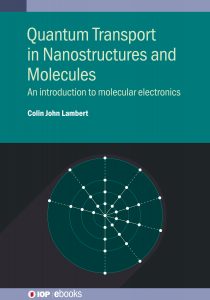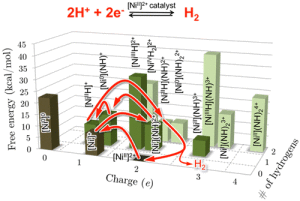 New book by Colin J. Lambert published
New book by Colin J. Lambert published
In March 2021, IOP Publishing published the latest book in their electronics subject area, Quantum Transport in Nanostructures and Molecules: An introduction to molecular electronics by Professor Colin J. Lambert, research professor at Lancaster University, UK.
This book presents a conceptual framework for understanding room-temperature electron and phonon transport through molecules and other quantum objects. It looks at the flow of electricity through molecules at the boundary of physics and chemistry, and introduces molecular electronics for physicists, and quantum transport for chemists.
Professor Lambert
Professor Lambert is a world leader in the field of single-molecule electronics. He has been a professor at Lancaster since 1990 and in 2010 was awarded a research professorship. He is also a visiting professor in the Materials Department at the University of Oxford, and an elected member of Academia Europaea. (more…)


